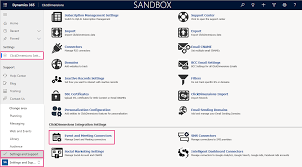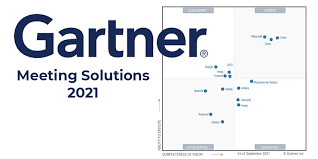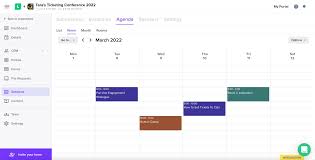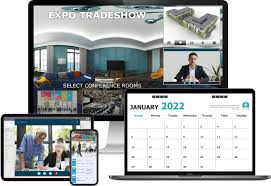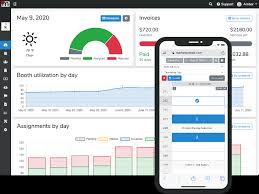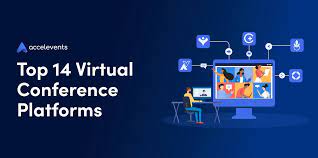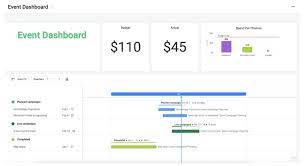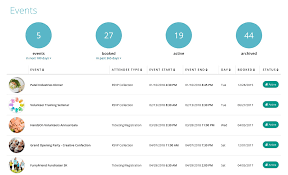Event Management Software Pricing: A Comprehensive Guide
When it comes to planning and managing events, the right software can make all the difference. Event management software offers a wide range of features and functionalities that streamline the entire event planning process. However, one crucial aspect that event organizers need to consider is the pricing structure of these software solutions.
Event management software pricing can vary significantly depending on several factors. Here’s a comprehensive guide to help you understand the key aspects and considerations when it comes to pricing:
Subscription-based Pricing
The most common pricing model for event management software is subscription-based. This means that you pay a recurring fee for using the software over a specific period, typically monthly or annually. The cost of subscriptions can vary based on factors such as the number of events you plan to manage, the size of your organization, and the level of features you require.
Tiered Pricing Structure
Many event management software providers offer tiered pricing structures that cater to different user needs. These tiers often include basic, standard, and premium packages with varying levels of features and support. The higher-priced tiers usually offer additional functionalities such as advanced reporting, integration options, or dedicated customer support.
Customized Pricing
In some cases, event management software providers may offer customized pricing plans tailored specifically to your organization’s requirements. This option allows you to negotiate a price based on your unique needs, such as managing multiple events simultaneously or integrating with other systems.
Additional Costs
While subscription fees form the core of event management software pricing, it’s essential to consider any additional costs that may arise. These costs could include fees for extra users or attendees beyond certain limits, payment processing fees, or charges for additional modules or integrations.
Free Trials and Demos
Many event management software providers offer free trials or demos to give potential customers a chance to explore the platform before committing to a subscription. These trials allow you to assess the software’s usability, features, and overall fit for your event management needs.
Value vs. Cost
When evaluating event management software pricing, it’s crucial to consider the value it brings to your organization. While cost is undoubtedly an essential factor, it’s equally important to assess how the software can streamline your event planning processes, enhance attendee experiences, and improve overall efficiency.
In conclusion, event management software pricing can vary based on factors such as subscription models, tiered packages, customization options, and additional costs. It’s essential to carefully evaluate your organization’s needs and budget while considering the value provided by the software. By doing so, you can select a solution that not only fits your requirements but also offers a favorable return on investment for your events.
7 Advantages of Event Management Software Pricing: Customization, Transparency, and ROI
- Flexible subscription-based pricing allows for scalability and budget control.
- Tiered pricing structures offer options that cater to different organizational needs.
- Customized pricing plans provide tailored solutions for specific requirements.
- Additional costs can be transparently assessed and managed upfront.
- Free trials and demos allow for hands-on evaluation before committing to a purchase.
- Event management software streamlines processes, saving time and effort in planning and execution.
- Efficient pricing models ensure a favorable return on investment for event organizers.
Four Downsides of Event Management Software Pricing: High Costs for Small-Scale Events, Unexpected Fees, Training Expenses, and Vendor Lock-In Risks
- Costly for Small Events
- Hidden Additional Costs
- Learning Curve and Training Costs
- Lock-in Effect
Flexible subscription-based pricing allows for scalability and budget control.
One significant advantage of event management software pricing is its flexible subscription-based model, which enables scalability and budget control. With this pricing structure, event organizers have the freedom to choose a subscription plan that aligns with their current needs and budget. As the scale of events or organizational requirements change over time, they can easily upgrade or downgrade their subscription accordingly. This flexibility allows for efficient resource allocation and ensures that costs remain within control, making it an ideal solution for both small-scale events and large-scale conferences.
Tiered pricing structures offer options that cater to different organizational needs.
One significant advantage of event management software pricing with tiered structures is that it offers options that cater to different organizational needs. With tiered pricing, event organizers can choose a package that aligns with their specific requirements and budget. Whether you’re planning a small-scale event or managing multiple large-scale events, these pricing structures allow you to select the level of features and support that best suits your organization. This flexibility ensures that you’re not paying for unnecessary functionalities while still having the option to upgrade as your event management needs evolve.
Customized pricing plans provide tailored solutions for specific requirements.
One significant advantage of event management software pricing is the availability of customized pricing plans. These plans offer tailored solutions to meet specific requirements of organizations. By allowing negotiations based on unique needs, such as managing multiple events simultaneously or integrating with other systems, customized pricing ensures that event organizers pay for the functionalities they truly need. This flexibility in pricing structure enables a more efficient and cost-effective approach, ensuring that organizations get the most value out of their investment in event management software.
Additional costs can be transparently assessed and managed upfront.
One significant advantage of event management software pricing is that it allows for transparent assessment and management of additional costs upfront. With a clear understanding of the subscription fees and any potential extra charges, event organizers can accurately budget and plan their expenses. This transparency enables them to make informed decisions about which features or integrations are worth the additional investment and ensure that there are no surprises down the line. By having a comprehensive view of the costs involved, event planners can effectively manage their budgets and allocate resources more efficiently.
Free trials and demos allow for hands-on evaluation before committing to a purchase.
One significant advantage of event management software pricing is the availability of free trials and demos. These offerings provide an opportunity for potential customers to have a hands-on evaluation of the software before making any purchase commitments. By experiencing the software firsthand, users can assess its user-friendliness, functionality, and suitability for their specific event management needs. This allows for informed decision-making, ensuring that the chosen software aligns with their requirements and provides value for their investment. Free trials and demos empower event organizers to make confident choices and select a software solution that best meets their needs.
Event management software streamlines processes, saving time and effort in planning and execution.
One of the significant advantages of event management software pricing is its ability to streamline processes, ultimately saving valuable time and effort in the planning and execution of events. With features such as automated registration, attendee management, and real-time communication tools, event organizers can efficiently handle tasks that would otherwise be time-consuming and prone to human error. By centralizing all event-related information and workflows in a single platform, event management software enables seamless collaboration among team members and simplifies the overall planning process. This efficiency boost allows organizers to focus more on strategic decision-making and delivering exceptional experiences for attendees, leading to successful events with minimal stress and effort.
Efficient pricing models ensure a favorable return on investment for event organizers.
Efficient pricing models in event management software ensure a favorable return on investment for event organizers. By offering subscription-based or tiered pricing structures, software providers allow organizers to choose plans that align with their specific needs and budget. This flexibility ensures that organizers only pay for the features and functionalities they require, optimizing their investment. Additionally, the automation and streamlining capabilities of event management software save valuable time and resources, allowing organizers to focus on delivering exceptional events while maximizing their return on investment.
Costly for Small Events
One notable drawback of event management software pricing is that it can be costly for small-scale events or organizations with limited budgets. The recurring subscription fees associated with these software solutions can quickly add up and become a significant expense. For smaller events that don’t require extensive features or functionalities, the cost of the software may outweigh the benefits it provides. This can pose a challenge for event organizers who are looking for cost-effective solutions to manage their events efficiently while staying within their budget constraints.
Hidden Additional Costs
One notable con of event management software pricing is the presence of hidden additional costs. While the base subscription fee may be clearly advertised, event management software providers often have additional charges that may not be immediately apparent. These hidden costs can include fees for extra users, attendees beyond certain limits, or specific features/modules that come at an additional expense. Such unexpected expenses can significantly impact your budget and may lead to financial strain if not carefully considered beforehand. It is crucial to thoroughly review the pricing structure and inquire about any potential hidden costs to ensure transparency and avoid any surprises down the line.
Learning Curve and Training Costs
One notable con of event management software pricing is the learning curve and training costs associated with implementing new software. When adopting a new event management software, organizations often need to invest time and effort into learning and training their staff on how to effectively use the software’s functionalities. This learning curve can lead to additional expenses as companies may need to conduct training sessions or even hire external consultants to assist with the implementation process. These costs should be taken into consideration when evaluating the overall pricing structure of event management software solutions.
Lock-in Effect
One significant drawback of event management software pricing is the lock-in effect. Once you commit to a specific software provider, switching to another platform can become a challenging and costly process. This is primarily due to potential data migration issues or contractual obligations that may arise. The lack of flexibility in switching software providers can limit your options in the future if you wish to explore alternative solutions. It’s important to consider this con and carefully evaluate the long-term implications before making a commitment to ensure that the chosen software aligns with your organization’s evolving needs.

